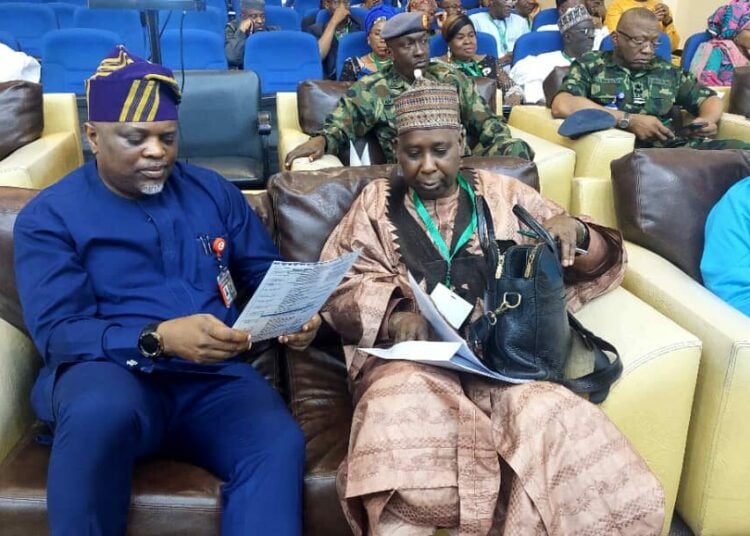Vice President Kashim Shettima, on Thursday, threw his weight behind ongoing reforms at the National Institute for Policy and Strategic Studies (NIPSS), warning that the standards of the Senior Executive Course (SEC) must not be compromised in the name of inclusivity.
Shettima, represented by his Special Adviser on Economic Affairs, Dr. Tope Fasua, spoke at a two-day stakeholders’ conference with nominators of participants for the SEC and other partners, held at the State House Auditorium in Abuja.
He said that while calls for broader entry requirements were valid, the integrity of the SEC depended on attracting leaders at near-peak positions who could shape policy and drive institutional transformation.
“Flexibility must not be confused with compromise. The SEC is designed for those at near-peak leadership levels — policy shapers, decision influencers, and institutional drivers,” Shettima said.
The Vice President also addressed concerns about indiscipline, health challenges of nominees, and the rising demand for slots, stressing that discipline remained “non-negotiable.”
He urged nominating bodies to ensure that candidates are physically and mentally fit for the rigours of the course.
Shettima disclosed that government reforms to strengthen NIPSS, including the review of its enabling law and staff conditions of service, were already underway.
He described the Institute as “a beacon of intellectual excellence, policy innovation, and leadership development” that must be preserved and reinforced.
In his keynote address, Nigeria’s Permanent Representative to the United Nations (UN), Professor Tijjani Muhammad-Bande, called for a reimagining of leadership training at the Institute.
He urged NIPSS to reassess its curriculum and methods, improve the coordination of study tours, and maintain funding as a national responsibility rather than rely heavily on paid programmes.
Muhammad-Bande also raised concerns over allegations of ghost-written projects by participants and suggested that officers at deputy director level with at least three years left in service should be prioritised for nomination.
Earlier, the Director-General of NIPSS, Professor Ayo Omotayo, stressed that the quality and alignment of nominees directly determined the impact of the SEC.
He said the Institute was committed to reforms and innovation but required strong partnerships with nominating institutions, government, and the private sector, to deliver on its mandate of grooming leaders for national transformation.





